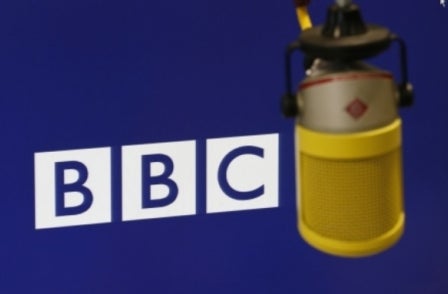
Plans for a review of the penalties for failure to pay the TV licence have passed a key hurdle in the House of Commons, paving the way for possible decriminalisation.
An amendment proposing the review won unanimous cross-party support in the Commons committee scrutinising the Government's Deregulation Bill, and is now almost certain to become law when the legislation completes its passage through Parliament.
The new proposals would require Culture Secretary Maria Miller to carry out a review of the sanctions for licence fee dodging, looking at the option of switching to a civil penalty system of fines, within three months of the Bill being passed.
With the review required to report within a year, it is not likely to produce its recommendations to Parliament and the BBC Trust until after next year's general election.
Significant cross-party backbench support for a call from Conservative MP Andrew Bridgen to remove the threat of criminal sanction prompted the Government to propose the review, which Labour also backs.
The BBC, which had warned an immediate switch would hit funding for its services by encouraging evasion, has signalled a willingness to discuss changes as part of negotiations over the renewal of its charter, due in 2017.
Cases of people accused of evading the £145.50 fee accounted for more than one in 10 criminal prosecutions last year, encouraging more than 150 MPs to back Mr Bridgen's campaign for decriminalisation. Those found guilty can be fined up to £1,000, with the ultimate punishment of jail if they "wilfully" refuse to pay the fine.
Official figures released by the Ministry of Justice in response to a question from the North-West Leicestershire MP revealed that 193,049 defendants were prosecuted in magistrates' courts in England and Wales over TV licence evasion in 2012, an increase of 42% since 2007. Some 164,932 were found guilty and 28,117 not guilty – a conviction rate of 85%.
Numbers jailed for defaulting on a fine for TV licence fee evasion in England and Wales rose from 27 in 2007 to 51 in 2012.
Justice minister Shailesh Vara pointed out that most TV licensing cases are uncontested and are therefore dealt with in the defendant's absence.
Following the committee's decision to approve a review, BBC director of corporate and public affairs Andrew Scadding said: "This approach is a sensible one as it means that all parties will be able to consider any changes to the current system with a clear understanding of the consequences that will follow – not least the potential impact on the services that the BBC is able to provide for its audiences.
"The licence fee is by no means a perfect system, but for 40p a day it does provide a television, radio and online service that is the envy of much of the world."
Writing on the BBC Blog website, Mr Scadding added: "Under the current system, licence fee evasion has been steady at 5% for the last five years. We have one of the lowest evasion rates in Europe.
"If just 5% more of homes refused to pay, it would result in a loss of revenue equivalent to about £200 million. This is the same as the budgets for CBBC, CBeebies, and BBC Four… We are not crying wolf when we say that a loss of income through an increase in evasion would means a loss of more services.
"The current system is by no means broken, but it is right to examine it and we will engage with all sides of the debate when the Government's review takes place. At the BBC we want a system that works – one that is simple, proportionate, cost-effective and ensures evasion remains as low as possible.
"But in finding this system it's important that we do not let ideological motivations cloud a debate that will take place in the context of Charter review and a decision on what the BBC of the future should look like. If we do that we will be doing the next generation of viewers and listeners a disservice."
A BBC Trust spokesman said: "As the Trust has said previously, this is an issue that should be discussed in the round, including the potential impact on licence fee income and BBC output, with any decisions made as part of the Charter review process. The clauses passed today seem to be in line with that."
Citizens Advice chief executive Gillian Guy said: "There is a difference between won't pay and can't pay. The increasing pressure on people's finances means more and more are struggling to make ends meet.
"In the last year Citizens Advice Bureaux have seen a 20% rise in problems with television licence arrears.
"A jail sentence for being unable to pay is out of kilter with how other debts are handled. The squeeze on people's finances is not going to disappear any time soon. It is crucial that all creditors face up to the reality of people in financial difficulty and take steps, like offering affordable repayment plans, to help them meet their financial commitment."
Email pged@pressgazette.co.uk to point out mistakes, provide story tips or send in a letter for publication on our "Letters Page" blog
